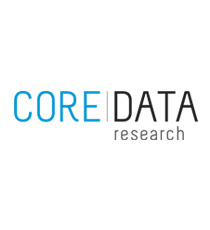In Australia we talk a lot about our ‘cash economy’ – the cash-in-hand, under the table payments that hit the government’s hip pocket in the form of unpaid taxes or superannuation.
The Australian Taxation Office (ATO) sees it as a major tax integrity risk and is throwing money and people at the problem, with a budget of more than $37 million and 375 staff allocated in 2015-16 to monitor this risk.
But while the cash economy is a key focus of government, Western Australians are increasingly embracing a cashless society when it comes to their banking needs.
Contactless payments are already leaping from plastic cards in our wallets to ever-present mobile and wearable devices. Westpac has teamed up with Android-powered Samsung and American Express and ANZ with Apple Pay for iPhone payments. Deals between banks with Android Pay can’t be far behind.
Recently, Citibank Australia became the first Australian bank to announce it would go cashless, with its branches no longer handling notes and coins.
It’s likely that other banks will follow suit, given the shift away from branches towards digital services as banking customers’ search for greater convenience and accessibility.
Research by CoreData of more than 800 Australians suggests the opening or modification of accounts is the single behaviour in which branch access is most preferred over other service channels, such as website, smartphone, email, phone or social media.
In line with this trend, card is fast becoming Australians’ payment method of choice for everyday transactions – and Western Australians are leading the nation in the adoption of contactless payments.
CoreData’s research reveals 57% of Western Australians are more likely to use card when making an everyday purchase – higher than the national average of 47% and ahead of NSW (43.4%), Victoria (42.5%) and Queensland (52.1%).
It’s not just younger customers who have grown up with technology who are embracing these technological advances.
Nationally, Baby Boomers are the age group most likely to use a card rather than cash for everyday transactions (51.6%) and more than two in five (43.4%) Pre-boomers – those born before the end of the second World War – are ‘much more likely’ to use card when making everyday purchases.
Digital money is not without risk, particularly when partnering with external parties, and the banks will need to continue to work hard to avoid data leaks and identity theft online.
But with branches rapidly losing relevance for everyday banking, this trend provides an opportunity for banks to refocus their culture on understanding and enhancing the customer experience through innovative digital solutions.
